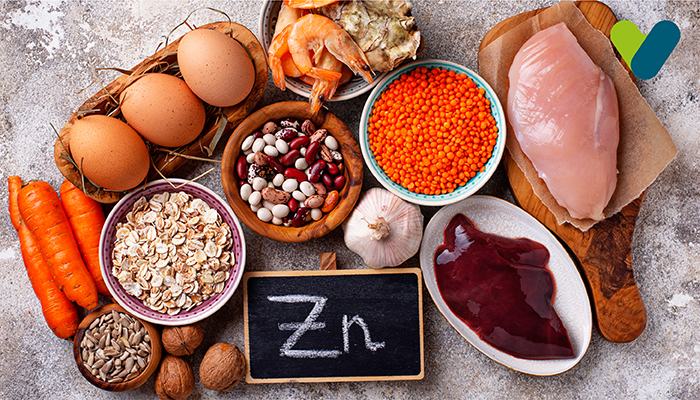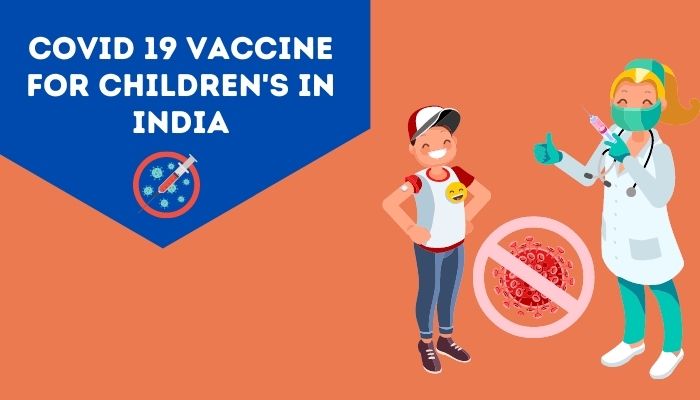It is rightly said what we eat is what makes our body and who we are. A diet giving us every required nutrient in the right quantity is very important for healthy human sustenance. When our body has all the nutrients in the right quantity available, then our immune system is directly affected, and we can fight all the infections. We get to have good immunity and high resistance from diseases.
Sometimes people can't have all the required nutrients in their diets, so additional supplements are also needed along with a balanced diet.
We have seen in this pandemic that people who had good immunity have had the edge over those who didn't for tackling coronavirus disease. People were advised to take additional supplements for vitamin A, vitamin c, zinc, etc. Let us look at how zinc is so important to tackle COVID-19.
Why is zinc such an important element?
Zinc is essential for the human body, and it plays a wide variety of roles. Zinc helps in pro-activating more than 300 enzymes in our body for enhancing our metabolic procedures. Zinc supplements are also given to people for the proper running functioning of the body at times of reproductive needs. Zinc is also a very important element for cardiovascular activities and enhancing nervous system functioning.What happens when zinc is deficient?
Any nutrient in lower amounts than the required quantity in the human body can lead to a condition called deficiency of that nutrient. Any nutrient deficiency leads to the body becoming a target of many diseases and infections.Zinc deficiency causes conditions like a delay of growth in children and higher risks of getting infections. The deficiency of zinc also causes pneumonia risks in people who are suffering from coronavirus disease.
As for the latest reports, more than 1.5 billion people are at risk of deficiency of zinc in the world.
What are the effects of zinc on the immune system?
The human immunity system works upon the white blood cells, which fight with every kind of pathogen, causing all the diseases and infections. Different types of WBC are responsible for repairing, making antibodies, capturing and killing pathogens, and recovering the immune system after going through disease. Zinc is very important because zinc works as a support system in the production and growth, and maintenance of white blood cells.Zinc also plays another important function in anti-inflammation. It regulates inflammation and helps to fight infections by reducing the overproduction of cytokines which have pro-inflammatory effects.
Zinc also helps in inhibiting the reproduction of disease-causing pathogens like rhinoviruses that are responsible for a wide variety of diseases like the common cold and other respiratory disorders in people.
How much zinc should be present in a person's intake?
The amount of zinc intake depends upon the age of people.- Children between infancy 6 months should take around 2 mg of zinc.
- Children aging 7 months to 3 years should take 3 mg 7 mg zinc in their diets.
- Children aged from 4 to 8 years should have an intake of 5 mg of zinc children aged between 9 to 13 years should have 8 mg of zinc intake adolescence of 14 to 18 years girls should take 9 mg of zinc and teenagers aged between 14 to 18 years boys should take 11 mg of zinc.
- Adult women have to take 8 mg of zinc regularly in their diets, and adult men need to take 11 mg of zinc in their diets. Pregnant teenagers need to take 12 mg, and adult pregnant women need to take 11 mg of zinc in their diets.
- Breastfeeding teenagers need to have an intake of level 13 mg of zinc, and breastfeeding women need to have an intake of 12 mg of zinc daily.
What are the best zinc supplements?
Phytates are rich deposits of zinc for people who are zinc deficient. They are the best supplements of zinc. Phytates are present in foods like loaves of bread made of whole grains, leguminous foods, and cereals. Try dates need to be consumed individually as if they are consumed with seafood, then they are not observed by the body, and nutrients are excreted out of the body as waste.Most non-vegetarian foods are rich sources of zinc, such as Oysters containing 3 ounces of zinc light which is equivalent to 74 mg. Beef contains 3 ounces of zinc. Crab also contains 3 ounces of zinc which is equivalent to 6.5 mg. Lobster contains 3 ounces of zinc and is approximately equal to 3.4 mg. Patty made of beef has 3 ounces of zinc which is equivalent to 3.4 mg.
What are the sources of zinc for vegans and vegetarians?
Zinc needs to be taken in more quantities for vegans and vegetarians than the non-vegetarians, as vegetarian diets are not as rich in zinc as non-vegetarian diets.Vegetarians can have deficiencies of nutrients like vitamin D vitaminb12 iodine zinc calcium as vegetarians and vegans do not consume non-vegetarian food.
Vegetarians can consume food such as oats, seeds like watermelon, seeds, the germ of wheat, yeast, and nuts like cashew, almonds, walnuts, etc.
These vegetarian foods are deposits of zinc, and vegans and vegetarians can turn to these foods to have their zinc requirement fulfilled and keep a check over zinc levels.


